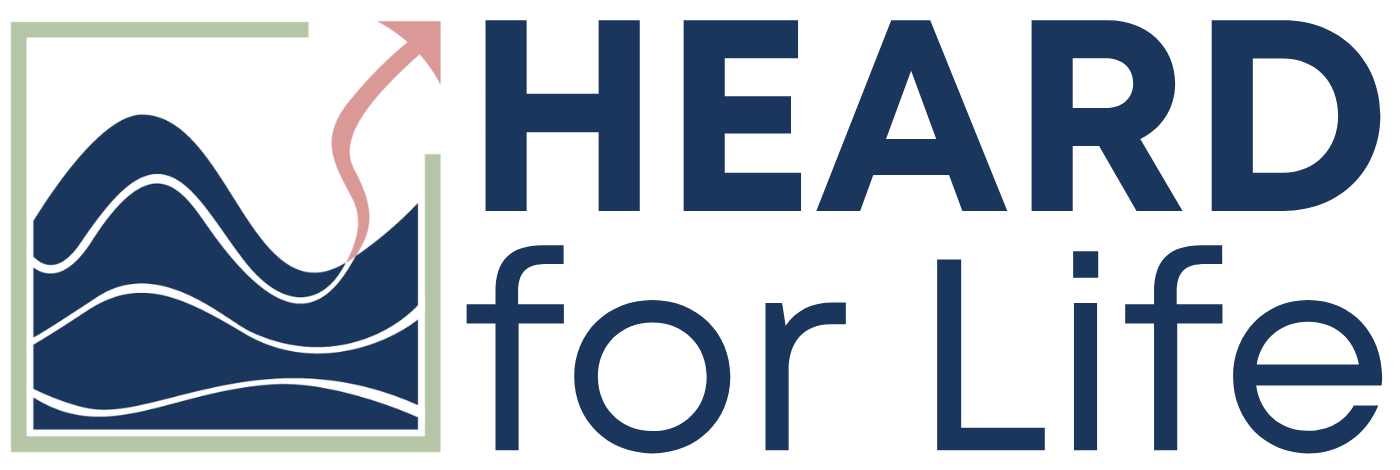Frequently asked questions
1. What is a patient advocate, and how can they help?
A patient advocate helps individuals navigate the healthcare system, ensuring their voices are heard and their needs are addressed. We assist with understanding medical conditions, exploring treatment options, and making informed decisions. We also support care coordination, appointment management, and communication with healthcare providers.
2. How can someone tell if they need a patient advocate?
A person might need a patient advocate if they struggle to manage their healthcare independently, require support in understanding complex medical information, or feel overwhelmed by the healthcare system. Our advocates are especially valuable for serious illnesses, managing multiple healthcare providers, or needing help with care planning and coordination.
3. What services does HEARD for Life offer?
HEARD for Life provides personalized guidance on medical conditions, treatment options, and decision-making. They assist with coordinating care, understanding medical records, and communicating with healthcare providers to ensure clients are informed and supported throughout their healthcare journey.
4. How does HEARD for Life differ from healthcare providers or insurance company representatives?
HEARD for Life differs in that we solely represent the client’s interests, focusing on ensuring the best possible care.
-Unlike healthcare providers, HEARD for Life does not offer medical treatments or diagnoses.
-Unlike insurance representatives, they do not handle policy or claims.
Instead, HEARD for Life is dedicated to improving the overall healthcare experience and meeting the client’s needs. We spend as much time as necessary with the client to create an individualized care approach, beginning with listening to the client's concerns and then translating and amplifying those concerns to the medical care team.
5. How can someone get started with HEARD for Life?
To start working with HEARD for Life, individuals can reach out through the contact form on our website or schedule a free consultation. During this initial discussion, HEARD for Life will explore the client’s specific needs, goals, and how they can assist. A tailored plan will then be developed.
6. How should someone prepare for a consultation with HEARD for Life?
To maximize the effectiveness of a consultation, individuals should prepare by assembling a list of questions or concerns. Gathering relevant medical records, treatment plans, and any other pertinent information can also be helpful. This preparation allows HEARD for Life to better understand the situation and provide more targeted support.
7. Are HEARD for Life's services covered by insurance?
Currently, HEARD for Life's services are completely self-pay and are not covered by insurance, Health Savings Accounts (HSAs), or Flexible Spending Accounts (FSAs). While we understand that these payment options could enhance accessibility and hope that future legislation might address this, the self-pay model allows HEARD for Life to remain impartial and fully dedicated to the client's best interests. After all, insurance-dictated healthcare can often be part of the problem, isn't it?
8. What if someone needs help with insurance issues?
While HEARD for Life primarily focuses on medical guidance and advocacy, we can assist with some basic insurance-related matters. For more specialized insurance support, we partner with a medical billing advocate who focuses specifically on insurance issues.
9. Can HEARD for Life assist with end-of-life planning?
Yes, HEARD for Life can help with end-of-life planning by assisting individuals in understanding and preparing advanced directives, living wills, and other important documents. We also ensure that the client’s wishes are clearly communicated and documented.
10. How does HEARD for Life ensure privacy and confidentiality?
Privacy and confidentiality are top priorities for HEARD for Life. We adhere to strict confidentiality standards and handle all personal and medical information securely and respectfully. All client communications and records, including messaging and video calls, are managed through PracticeBetter, an encrypted, secure, and HIPAA-compliant online platform. PracticeBetter also offers apps for both Android and Apple devices, making communication with your advocate as convenient as possible.
